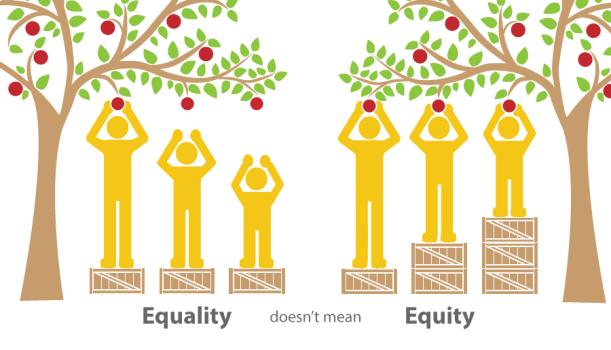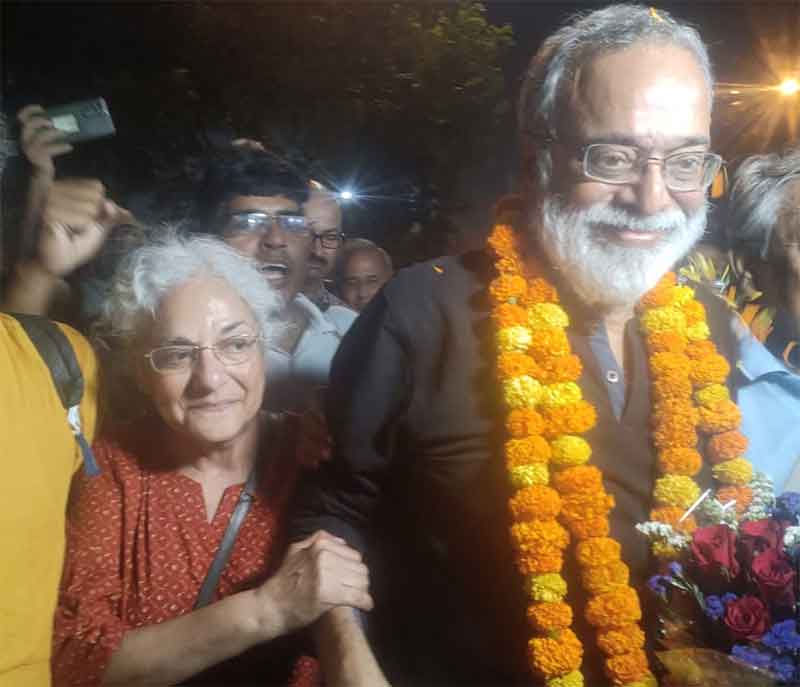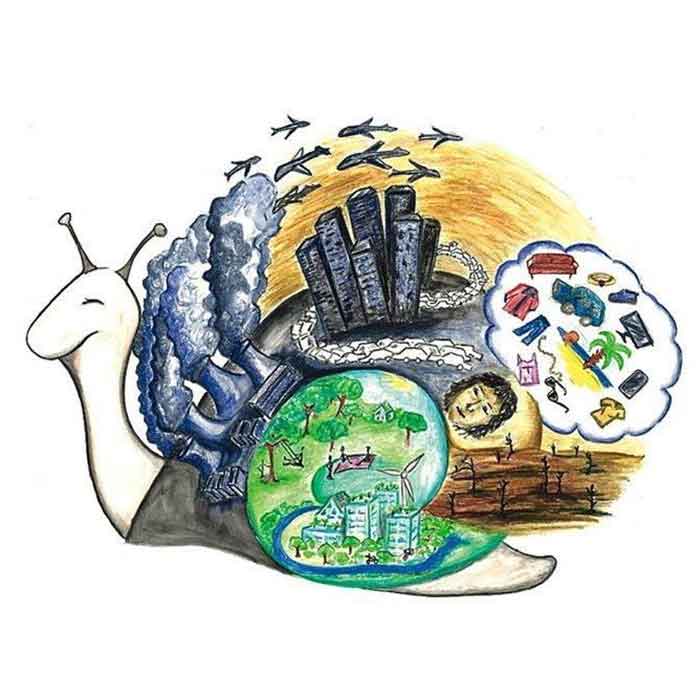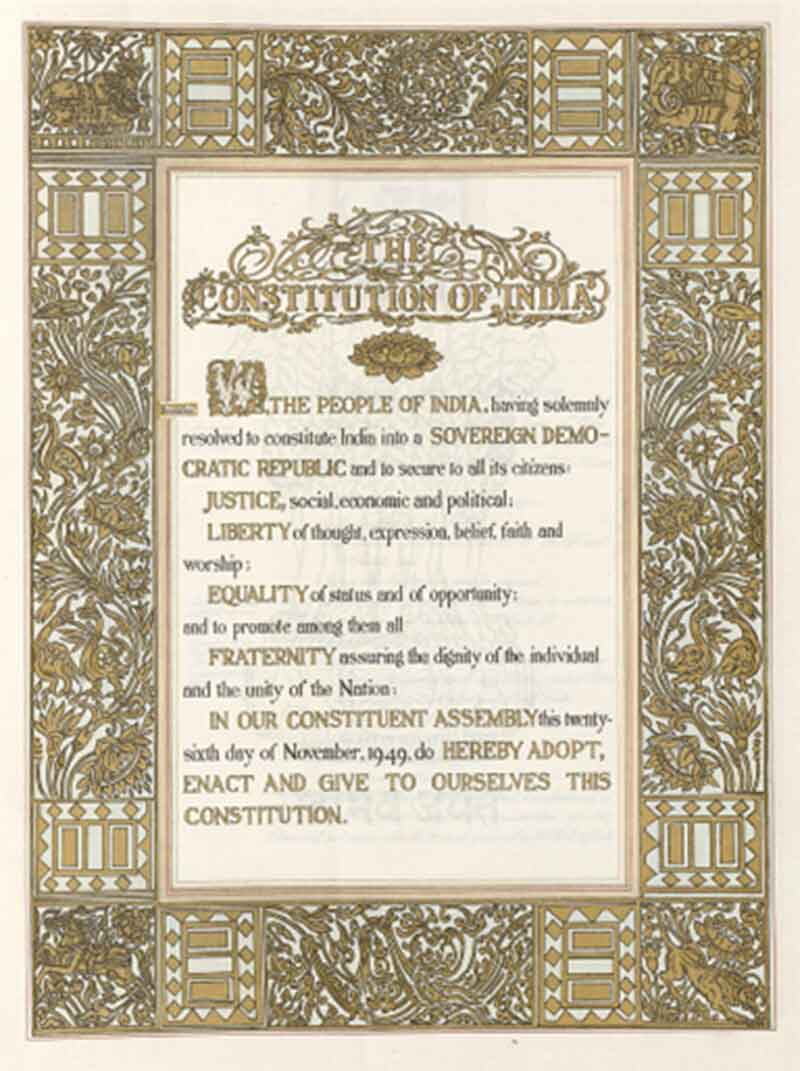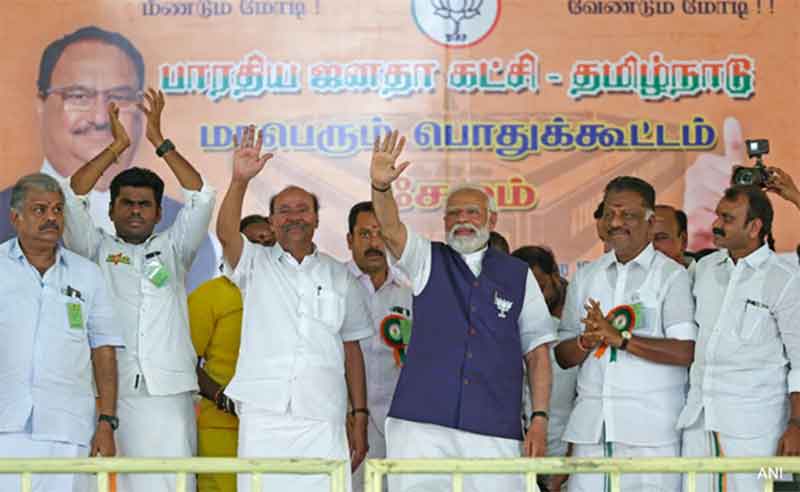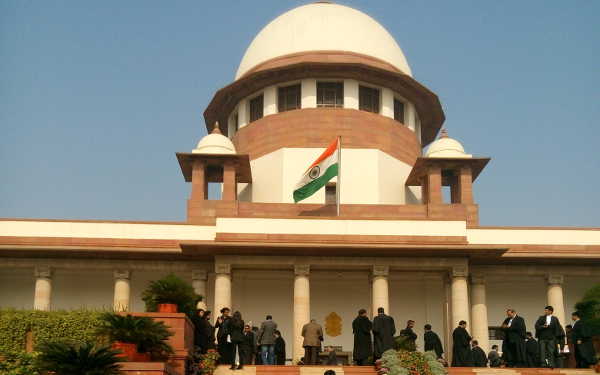
Supreme Court’s split verdict on EWS that upholds the 103rd Constitutional Amendment Act of January 2019 brought out by Modi government providing 10% economic reservation to the economically backward upper castes (Economically Weaker Sections-EWS) excluding the ‘backward classes’ among SC/ST/OBC is a violation of the very conceptualisation on caste-based reservation as conceived in the Constitution. Revealingly, while the Hindutva forces of all hues, including “hard Hindutva” represented by BJP and AAP on the one hand and “soft Hindutva” primarily symbolised by the Congress on the other, have started vying with one another to celebrate the SC ruling, it needs to be stated at the outset that this judgement is arbitrary and ‘unconstitutional’. It goes against the very principle of equality enshrined in the Constitution, as EWS reservation now adopted has totally excluded all the oppressed and backward castes—SCs, STs and OBCs—from this new quota. In essence, this paradigm shift in reservation is not purely economic, but wholly upper caste-oriented and is in conformity with Manusmriti, which forms the ideological basis of RSS neofascism in India today.
Of course, the political context of this judgement is very important. For, the Rao-led Congress regime, in tune with its abandoning of Nehruvian State-led development and embracing of neoliberalism, through an executive order had resorted to a 10% economic reservation in 1991. Prior to that, the social democratic CPI (M), with its mechanical approach of ignoring the inseparable link between caste and class, thereby characterising caste as a mere super-structural phenomenon, and hence already being part of the ruling system, in its November 4 1990 Central Committee Resolution had demanded 10% economic reservation in government jobs. However, the 9-member Constitution Bench of the SC in 1993 without any second thought struck down that move on the ground that the Constitution does not provide for reservation based on economic criterion. On the other hand, when the far-right, neofascist Modi regime through the 103rd Constitutional Amendment had brought back the so called economic reservation with clear-cut upper caste, “Manuist” orientation, totally barring SC/STs and OBCs from the category of EWS which is a clear violation of the character of the Constitution, the 5-member SC bench, though in a split verdict, has no qualms to come forward upholding it. This judicial somersault, no doubt, is a clear manifestation of how, along with other administrative institutions, Manuvad, the ideology of Hindutva fascism has established its firm grip over all spheres of the ruling system with its horrific dimensions in India today.
According to the Indian Constitution, reservation has never been a ‘poverty alleviation scheme’ or a means of removing economic inequalities in the society. Like similar “affirmative actions” prevailing in other countries, reservation in India where vast majority of the working and toiling people belong to the historically oppressed ‘untouchable’ and oppressed castes, caste-based reservation was incorporated to ensure representation and protection of the oppressed peoples from the monopolisation of public spaces by the upper elite castes who control the entire economic resources, political power and cultural/intellectual spheres. In caste-ridden India, it is to compensate for this historical oppression committed on the Dalits and oppressed castes who have been treated as subhuman by the Brahmanical upper castes that the Indian Constitution adopted reservation as one of its striking features. Thus, the purpose of reservation has been to facilitate the entry of the oppressed castes into the administration, education and public spheres.
However, the systematic and steady undermining of this accepted position on caste-based reservation began in public discourses with the ascendance of far-right neoliberal-neofascism under the Modi regime since 2014. At a time when the inhuman caste system that cuts across both ‘base and superstructure’ is getting new-found justification and respectability under saffron-neofascism, and is safely seated even in higher institutions of learning and scientific research and in the entire administration, and when caste atrocities and discrimination are bouncing back with intensified vigour, the SC judgement denigrating reservation to the lower castes and eulogising 10% upper caste-oriented reservation under the cover of reservation to EWS is to be seen as highly reactionary and brahmanical in essence, and in conformity with ongoing corporatisation snatching away all rights of the workers and oppressed people hard-earned through struggles of yesteryears.
In such a caste-ridden situation, the observation by Justice Bela Trivedi, who was a member of the majority judgement that upheld the EWS reservation seems revealing. Arguing for a time span regarding the existing reservation, she opines: “At the end of 75 years of our Independence, we need to revisit the system of reservation in the larger interest of the society as a whole, as a step forward towards transformative constitutionalism.” She also observed that prescription for a time limit in respect of the reservations and representations provided in Article 15 and Article 16 of the Constitution could be a “way forward leading to an egalitarian, casteless and classless society”. Obviously, implicit in this approach is a gross disregard of the seriousness of the deeply entrenched and all-pervading caste system in India. This belittling of caste is not an all of a sudden trend, but a long drawn-out process with the judiciary in India. For instance, a belittling or treating of caste, one of the most inhuman institutions in the entire history, as one among the other evils was visible earlier also. For instance, Justices Gogoi and Nariman in a 2015 judgement has proposed “new practices, methods and yardsticks” for “easy determination of backwardness”, and asked to think of a “matrix” of differently weighted categories, ranging from income, family situation, disability, education, level, etc. in addition to caste, all of which can form the criteria for reservation.
Obviously, the Indian Constitution had incorporated reservation to rectify the historical injustices committed against the ‘untouchables’ and oppressed castes by the brahmanical upper castes, and to ensure the representation of the oppressed castes in the administration and public institutions. But when the Constituent Assembly was drafting the Indian Constitution, RSS was vehemently opposing it and instead suggested ‘Manusmriti’, the ‘sacred book’ of chaturvarnya or varna system that identified women and Dalits as subhuman, as India’s Constitution, on the ground that a Republican Constitution would give equality to all castes against the interest of the elite castes. This was in accordance with Golwalkar’s postulate that casteism was synonymous with ‘Hindu Nation’. It was in accordance with that ‘Organiser’, the RSS mouthpiece in an editorial on November 30, 1949, which was repeated in January 1950, proposed fascist Manusmriti as Constitution. Of course, after waiting for many decades, today the situation has become favourable for RSS to move forward with its agenda. Thus the adoption of the 103rd Constitutional amendment by Modi regime followed by the SC’s recent endorsement should be seen in the context when Manuvadi Hindutva has established full-fledged control over the Indian state. As such, undermining of the oppressed caste-oriented constitutionally mandated reservation through upper caste-based economic reservation through Constitutional amendment today should be seen as inalienable component of Manuvadi-Hindutva, the ideological basis of RSS neofascism in India.
At this critical juncture when all oppressed sections and progressive-democratic forces allying with all non-fascist forces are duty-bound to come forward for an all-out offensive against this Manuvadi move against reservation, what we see today is the shameless spectacle of Congress, which claims to oppose BJP/RSS fascism striving hard to take the credit for being the progenitor of EWS reservation. Accordingly, while whole heartedly supporting this reactionary-fascist move by fascist regime, Congress spokesperson has also criticised the Miodi government on account of its delay in implementing the EWS which was initiated by Congress regimes years ago. Without much elaboration, suffice it to say here that the line of demarcation between “soft Hindutva” and “hard Hindutva” is too thin and that the former is paving the way for and ultimately flowing into the latter.
To be precise, while the Supreme upholds the validity of this ‘anti-Constitutional’, and an openly upper caste-oriented move, it is not a mere blow to the oppressed peoples of India, but to be evaluated as a prelude to the systematic abolition of caste-based reservation enshrined in the Indian Constitution, as part of the heinous move towards Hindurashtra with Manusmriti as its basis.
P J James is general secretary of CPI ML (Red Star)


